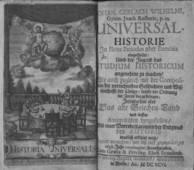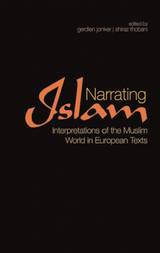
In this research, narratives about Muslims and Islam in historical textbooks were compared with representations of the self and the processes of becoming Christian-European self-description were reconstructed. Although in the "confessional age" Catholics distinguished themselves from Protestants, Lutherans from Reformed, and these two in turn from Anabaptists and other radical communities, the narrative of the threatening otherness of Muslims formed the unifying outer boundary for all Western Europeans. Across (Western) Europe, this narrative thus contributed to the narrative shape of a Christian continent. When, in the course of the 18th century, the borders between the Christian denominations gradually loosened in internal relations, the common border was perpetuated in external relations with the Muslims.
-
Aims

The Longue Durée asked how Muslims were made into Others and what demarcation took place in the process, to what extent the narratives of Islam contributed to the stabilization of the self, and what changes they underwent over time. Using German, Austrian and Dutch school history textbooks as examples, the questions were examined over a period of approximately 300 years. The selection of countries allowed the narrative productions of the three most important Christian denominations of the early modern period, namely the Lutheran, the Catholic and the Reformation, to be brought to the surface.
-
Methodology

The research thus addressed the production of images and the dynamics that emerge when borders are erected with images. A historical approach was chosen as the framework for analysis, combining the observation of long duration with a historical-institutionalist approach. The genesis of narratives in the Reformation, their Catholic, Lutheran, and Reformation dimensions, respectively, as well as their paths through the thickets of the secular, national, and the global ages were comparatively examined.
-
Results

